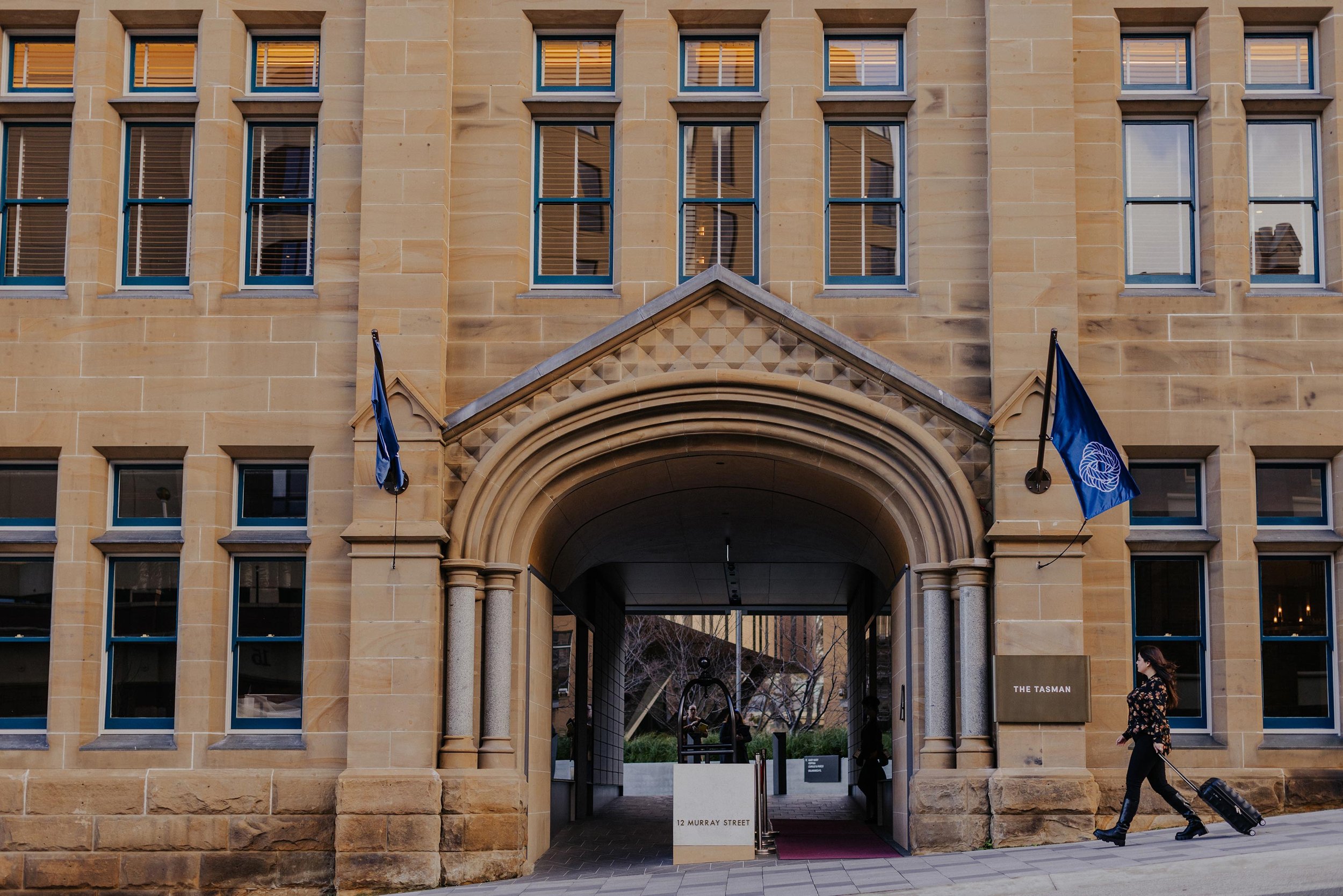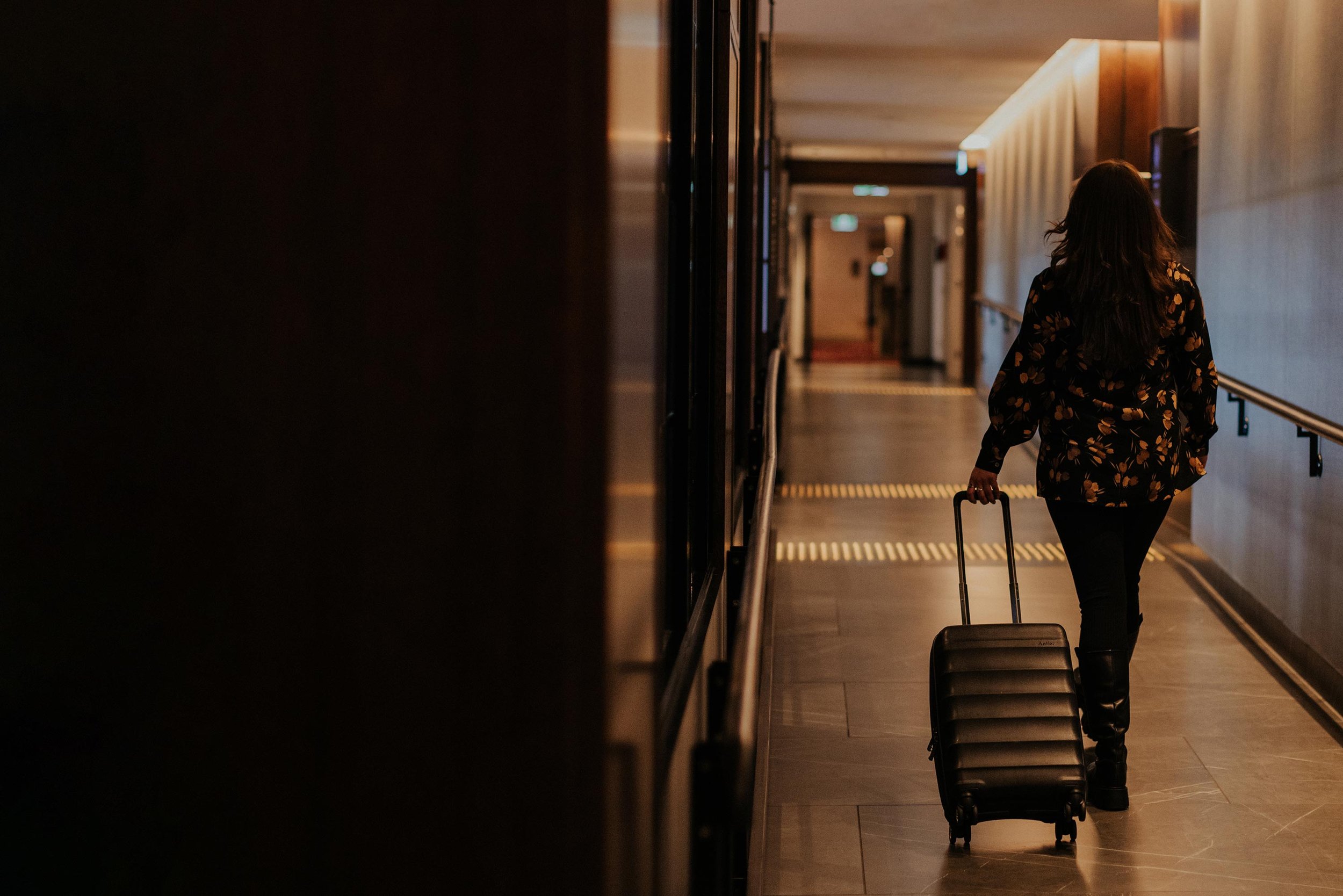Stephen Morahan
Still only in its first year of opening, The Tasman has already been recognised as one of the world's best hotels – a proud accolade for any owner or general manager to hold. It is easy to presume that to reach that point in your career, or to obtain such calibre, the only option is to start… well, yesterday. For General Manager Stephen Morahan, his current reality demonstrates that by taking a leap of faith, you never know where life may take you.
Stephen laughs, “The reason I got started in hospitality was really because my marks weren’t particularly brilliant during my school years. I spent a lot of time playing sports and not enough time paying attention.” A humbling perspective, but something many can relate to – that constant expectation to have a full career mapped out. While a daunting position to be in, Stephen is amongst many in the hospitality industry to prove an unsure mindset does not mean a rewarding career isn’t on the horizon; sometimes you just need to take a chance.
Stephen would go on to reach that clarity later in his career, but the ‘jump in and give it a go’ attitude worked best initially. “My grandparents introduced me to a family friend at what was the Renaissance in Sydney at the time,” he recalls, "and post that original introduction to the hospitality industry, my mother, unbeknown to me, enrolled me in a traineeship program.”
This was the first time Stephen considered the potential of a career in hospitality and recognised how well his personal attributes suited the friendly, welcoming and social nature of the job.
“Mums tend to know their child's personality better than anyone else, and I think based on what she saw in my personality, she must have thought that it would be an industry that would suit me. Hospitality is a very social industry and I've always been a pretty social person, so I think that it was a direction that she thought I should take rather than being stuck in an office environment which doesn't suit my personality at all.”
It wasn’t long before Stephen developed his knowledge through an Associate Diploma of Hospitality Management, while continuing to work in Sydney. “I was always aware that I would have to probably further my studies at the same time as improving my practical knowledge,” he says. However, while other industries present barriers like prerequisites, training or university degrees before even starting, hospitality sits in an advantageous position, encouraging all skill levels and all stages of life, with training available in many cases on the job. The biggest barrier instead, is simply deciding to take the chance.
Stephen's career has now surpassed 30 years and has been full of travel, meeting new people and experiencing different cultures – all the while developing his professional and personal skills – busting the myth that there is no growth or flexibility in the industry. From food and bar work in Melbourne, to a degree in tourism, advertising and marketing in Canberra. From moving to Newcastle working in supervisory roles, to living in the UK, Canada and Thailand and experiencing their approaches to hospitality. It’s a coveted lifestyle of travel while gaining invaluable work and life experience.
“I don't think there's a better training ground for people to learn about life, whether it be through people, through structured environments, through leadership and management, through organisational behaviour, understanding various cultures, and then getting an overview of businesses within a business,” Stephen says. “And that journey, well, I guess you could possibly do it in other industries, but certainly not as easily as you can within hospitality, and it's never been easier! For me it has really been to this point at least like a working holiday. And yes, you've got to work hard and you progress your career, but what a fantastic way to do it, to go and experience a new destination and location, a new product each time, and meet all those amazing people whilst getting paid for it. There's very few industries that allow you to do that as fluidly as hospitality.”
“That journey, well, I guess you could possibly do it in other industries, but certainly not as easily as you can within hospitality, and it's never been easier. For me, it has really been to this point at least like a working holiday.”
While travel became difficult through COVID, the pandemic changed the way society valued hospitality as a whole – a saying as old as time, you don't know what you’ve got until it's gone. “In terms of hospitality being a viable career choice, we're now seeing what happened with COVID, where people didn't or weren't able to travel. And as soon as the borders opened up, what did they do? All they wanted to do was go and get on planes, go and experience restaurants, bars, hotels and travel the world doing it,” Stephen explains. “So from a career perspective, is there really a bigger industry out there with as many opportunities? And we're only seeing that increase in size because I think people have realised that while all these other things are important, the need to travel and socialise and experience things is actually the biggest driver for us.”
This holds true for people like Stephen and his passion for helping guests experience everything Tasmania has to offer. “To be on the side that assists in providing that experience to a guest or a customer is very rewarding. To see them come in, whether it be to enjoy the hotel or to enjoy one of the food and beverage venues, and walk away having a fabulous, unique experience is very rewarding to me, and that drives the passion within me.”
The Tasmanian hospitality industry is a tight-knit and supportive industry to be a part of, embodying many characteristics that Australia’s island state is so renowned for – a welcoming environment, premium produce and passionate people. It is a hub for showcasing what the state has to offer, so it stands to reason that if you share a passion for local suppliers, incredible fresh produce and connecting with people who share a love for all of the above; then the hospitality industry may just be where you belong.
“It's such an important part of the state's product and we have such unique and amazing produce down here in Tasmania, that we want to share it with everyone and hospitality is the industry that is best suited to doing that. At the end of the day, hospitality is a people business. Without them, it's just a building.”




